 Congratulations to Richard Berger and the CEMP team (MS) for securing a number of CPD contracts with various individuals / organisations, Keith Brown (HSC) for securing four contracts with county councils, Clive Andrewes (HSC) for winning two contracts with Dorset Healthcare University NHS Foundation Trust, Peter Thomas (HSC) for winning funds from the NIHR for the PREVIEW project (in collaboration with Keele), John Tarrant (HSC) for organising an event on patient care in anaesthesia, Carol Bond and Louise Worswick (HSC) for securing funding from Dorset PCT, and to Jo Tyler (MS) for winning a contract with Best Rate Deals Ltd.
Congratulations to Richard Berger and the CEMP team (MS) for securing a number of CPD contracts with various individuals / organisations, Keith Brown (HSC) for securing four contracts with county councils, Clive Andrewes (HSC) for winning two contracts with Dorset Healthcare University NHS Foundation Trust, Peter Thomas (HSC) for winning funds from the NIHR for the PREVIEW project (in collaboration with Keele), John Tarrant (HSC) for organising an event on patient care in anaesthesia, Carol Bond and Louise Worswick (HSC) for securing funding from Dorset PCT, and to Jo Tyler (MS) for winning a contract with Best Rate Deals Ltd.
Congratulations are also due to Steve Calver and the MRG team in ST for securing a number of contracts, Charlie Wilkinson (BS) for securing a significant number of CPD contracts with Guernsey Training Agency, Bronwen Russell and the Bournemouth Archaeology team (ApSci) for a contract with Swanage Town Council to undertake some 3D scanning, Mark Dover (ApSci) for a couple of contracts with Dataloft, Mark Maltby (ApSci) for winning a couple of small contracts with English Heritage. David Osselton (ApSci) for securing a consultancy contract with the Home Office, Dave Parham (ApSci) for securing funds from English Heritage to continue the SWASH project, Roger Herbert (ApSci) for organising the Marine Taxonomy and Habitat Survey in May 2012, Jian Jun Zhang (MS) for organising the Computer Graphics International conference in June 2012, and to Liam Toms (MS) for a contract with KidZone Direct.
 Good luck to Anthea Innes (HSC) for submitting a large bid to the EC FP7 Health programme in collaboration with 2 UK institutions and 5 institutions in the EU, Alessandro Inversinii (ST) for a bid to the EC, Kip Jones (HSC) for a bid to the AHRC to continue impact work from the Rufus Stone film, Zulfiqar Khan and Mark Hadfield (DEC) for submitting a bid to Interreg on the Green Energy Channel Cluster, Tania Humphries-Smith (DEC) and David Kilburn (ST) who both submitted bids to the HEA’s Teaching Development Grant scheme, Fabian Homberg, David Secchi, Dinusha Mendis and Martin Kretschmer (BS) for a collaborative bid to the Intellectual Property Office, Howard Davis and Melanie Klinkner (BS) for a bid to the Nuffield Foundation, Keith Brown (HSC) for a bid to the States of Jersey Community and Social Services, Adam Blake (ST) for a bid to Matrix Evidence Ltd, David Kilburn (ST) for a bid to Philips Lighting Ltd, Ann Hemingway (HSC) for a couple of bids to NHS Bournemouth and Poole, Clive Andrewes (HCS) for a number of bids for PDU accreditations and re-accreditations, Daniel Franklin (ApSci) for a bid to Marine Management Organisation, Bronwen Russell and the Bournemouth Arch team for a bid to the British Museum, and to Jacqui Hewitt-Taylor, Carol Bond and Melanie Ledwith (HSC) for a bid to the Sir Halley Stewart Trust.
Good luck to Anthea Innes (HSC) for submitting a large bid to the EC FP7 Health programme in collaboration with 2 UK institutions and 5 institutions in the EU, Alessandro Inversinii (ST) for a bid to the EC, Kip Jones (HSC) for a bid to the AHRC to continue impact work from the Rufus Stone film, Zulfiqar Khan and Mark Hadfield (DEC) for submitting a bid to Interreg on the Green Energy Channel Cluster, Tania Humphries-Smith (DEC) and David Kilburn (ST) who both submitted bids to the HEA’s Teaching Development Grant scheme, Fabian Homberg, David Secchi, Dinusha Mendis and Martin Kretschmer (BS) for a collaborative bid to the Intellectual Property Office, Howard Davis and Melanie Klinkner (BS) for a bid to the Nuffield Foundation, Keith Brown (HSC) for a bid to the States of Jersey Community and Social Services, Adam Blake (ST) for a bid to Matrix Evidence Ltd, David Kilburn (ST) for a bid to Philips Lighting Ltd, Ann Hemingway (HSC) for a couple of bids to NHS Bournemouth and Poole, Clive Andrewes (HCS) for a number of bids for PDU accreditations and re-accreditations, Daniel Franklin (ApSci) for a bid to Marine Management Organisation, Bronwen Russell and the Bournemouth Arch team for a bid to the British Museum, and to Jacqui Hewitt-Taylor, Carol Bond and Melanie Ledwith (HSC) for a bid to the Sir Halley Stewart Trust.
Good luck to the academics in the School of Tourism who have submitted a collaborative bid to the Department for Culture, Media and Sport (Adam Blake, John Fletcher, Alan Fyall, Stephen Page, John Brackstone, Neelu Seetaram, Phil Alford, Steve Richards, Steve Calver).
BU submitted a number of applications to the HEA’s Doctoral Programme – good luck to Adele Ladkin and Lorraine Brown (ST), Mike Molesworth (MS), Richard Berger (MS), David John (DEC), and Jenny Moon (MS). Good luck to you all!
Matthew
 RCUK have a cross-cutting Digital Economy Theme which aims to support research into the transformational impact of digital technologies. In December last year the BU Research Blog advertised a notice from the EPSRC who were looking to build a community of researchers to invesitgate ‘New Economic Models’ as a sub-category of the Digital Economy Theme. As my own area of research into media management investigates the transformational changes of media organisations to the digital environment, I thought it would be worth applying.
RCUK have a cross-cutting Digital Economy Theme which aims to support research into the transformational impact of digital technologies. In December last year the BU Research Blog advertised a notice from the EPSRC who were looking to build a community of researchers to invesitgate ‘New Economic Models’ as a sub-category of the Digital Economy Theme. As my own area of research into media management investigates the transformational changes of media organisations to the digital environment, I thought it would be worth applying.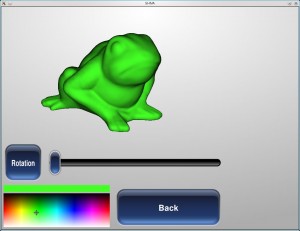






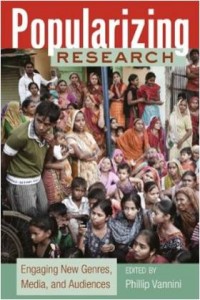
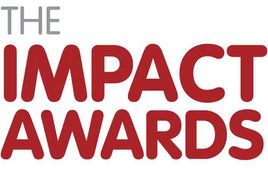







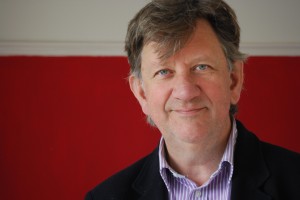 The
The 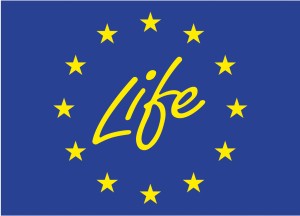











 TANGERINE project has lift off with BPC Indian Community!
TANGERINE project has lift off with BPC Indian Community! Postgraduate Research Experience Survey (PRES) 2024 – Closing today
Postgraduate Research Experience Survey (PRES) 2024 – Closing today THE INNOVATION COMMON ROOM: Going Old School
THE INNOVATION COMMON ROOM: Going Old School Apply for up to £1,000 to deliver an event and take part in a national festival of public engagement with research
Apply for up to £1,000 to deliver an event and take part in a national festival of public engagement with research MSCA Postdoctoral Fellowships 2024
MSCA Postdoctoral Fellowships 2024 Horizon Europe News – December 2023
Horizon Europe News – December 2023